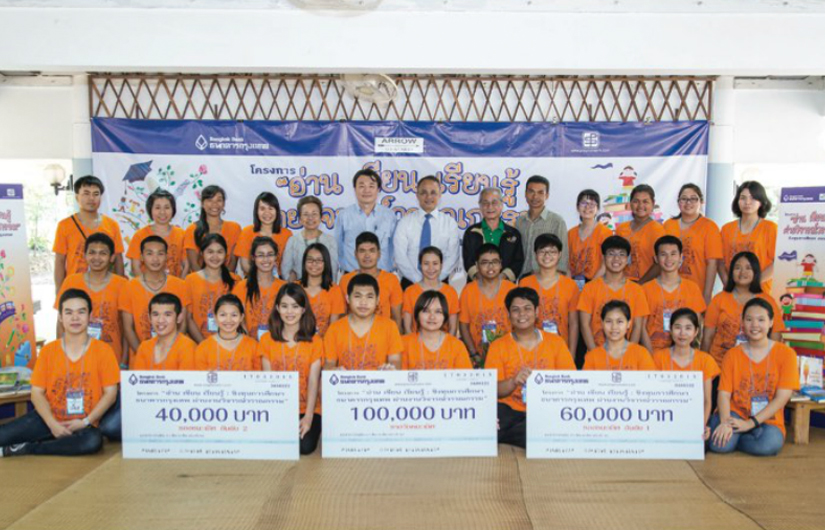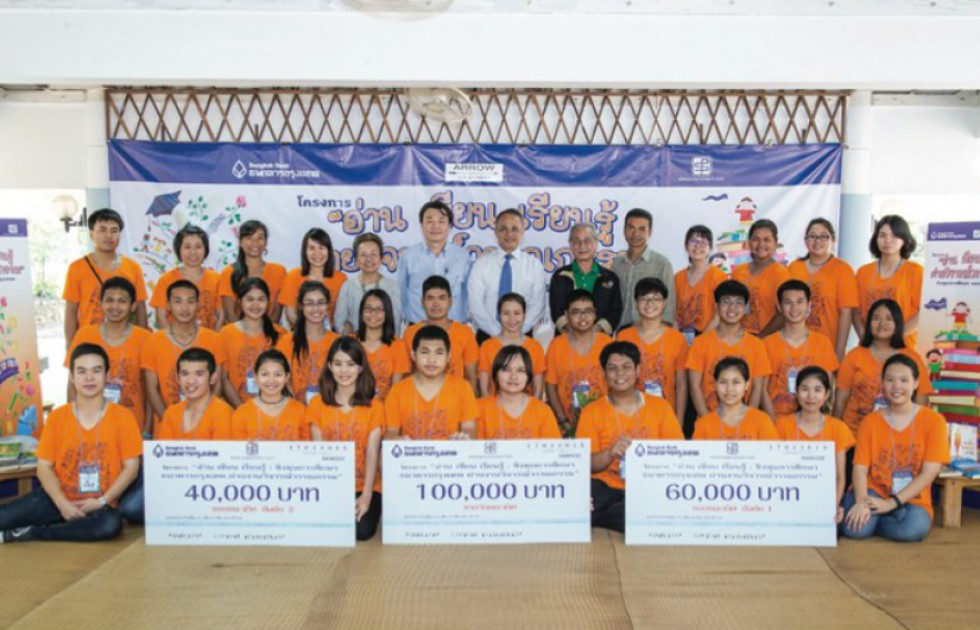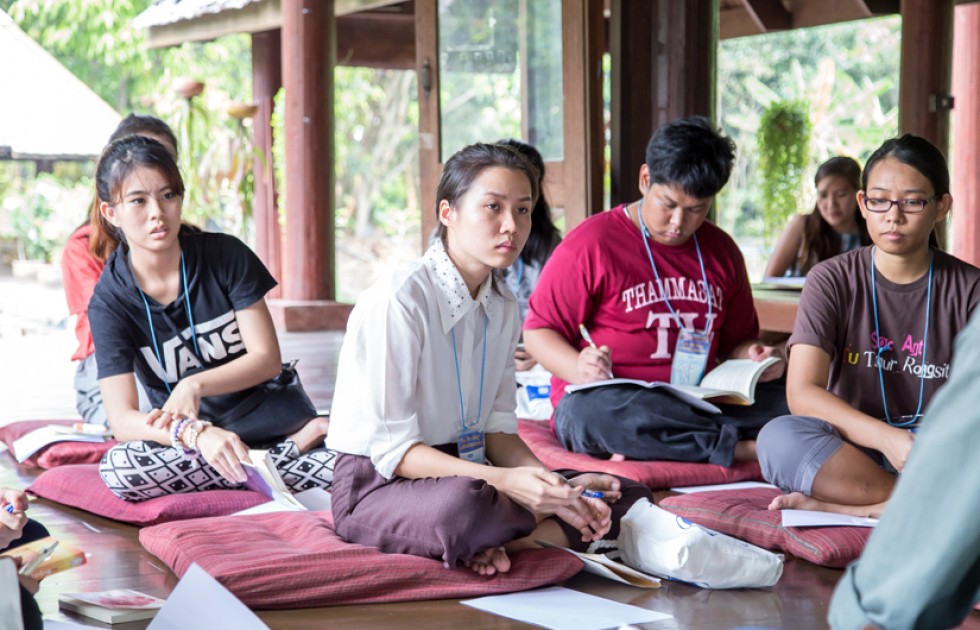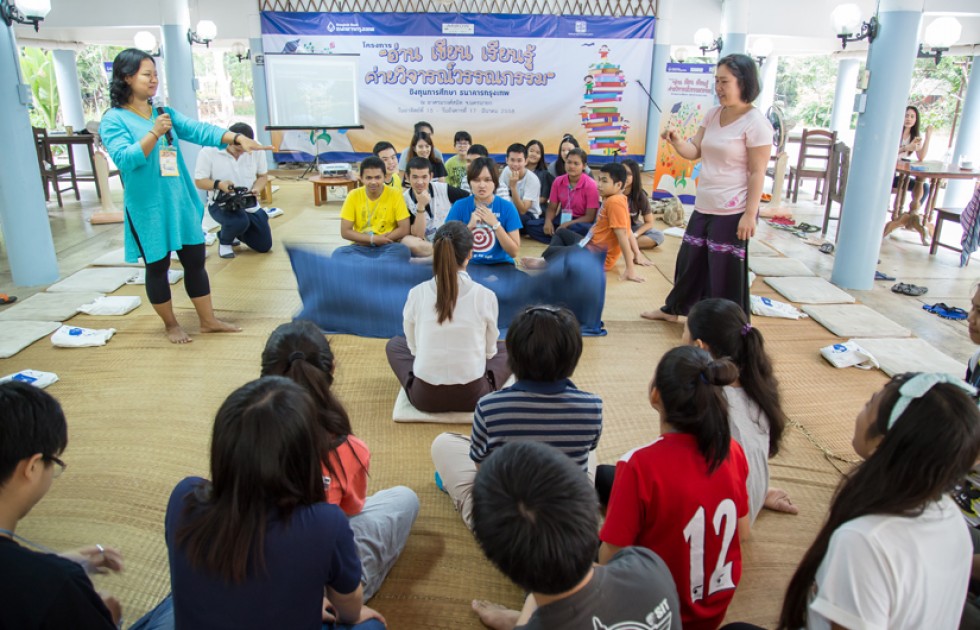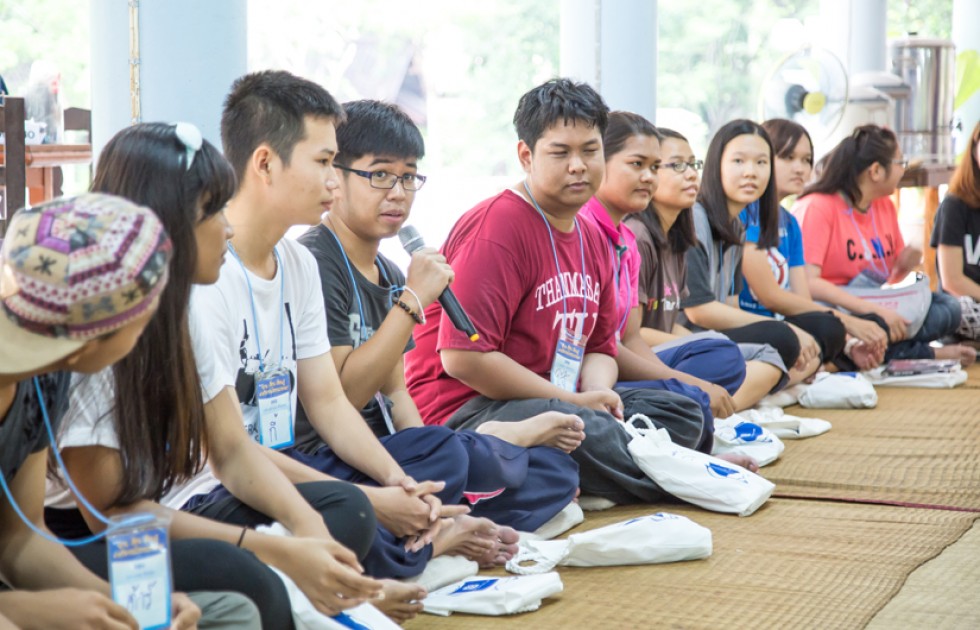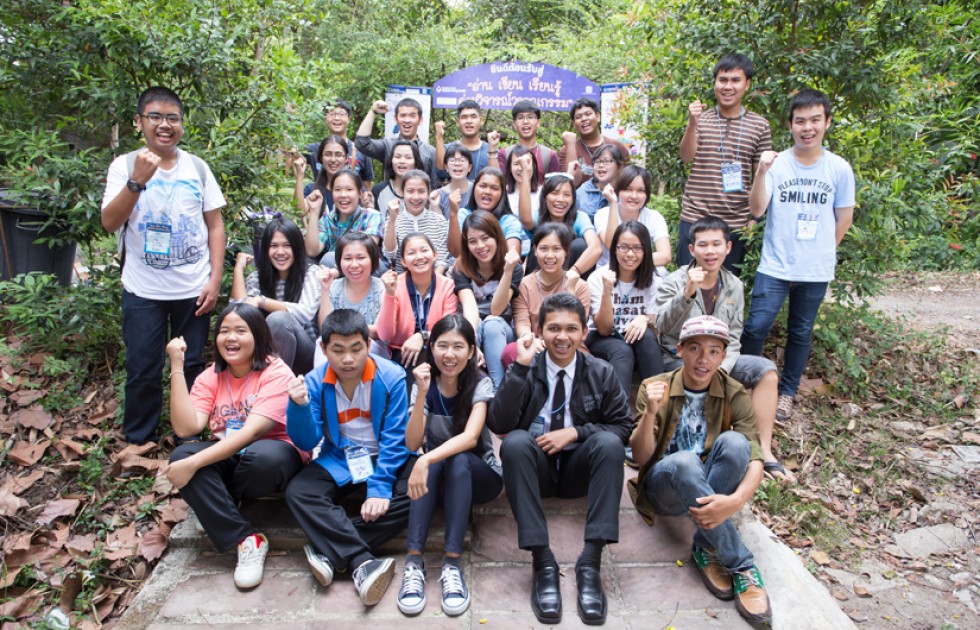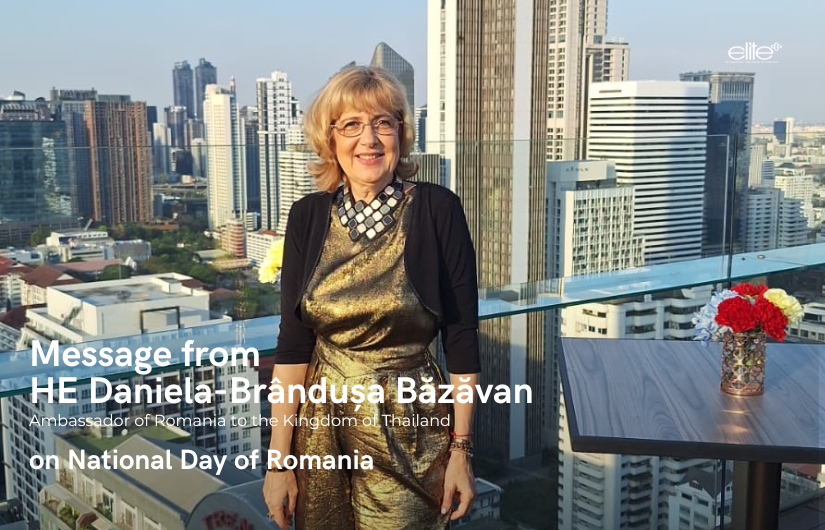An educational collaboration and literary criticism camp worked to plant the seeds of analytical thinking in the younger generation . It is not often that a publisher, financial institute and international school collaborate to emphasize the importance of literature and analytical thinking in society. A recent literary criticism camp organized by Praphansarn Publishing in cooperation with Bangkok Bank and Shrewsbury International School, however, did just that. The youth retreat in mid-March, called “Read, Write, Learn: The Literary Criticism Camp”, promoted in-depth reading and review of literary works for Mathayom 4-6 and university students.
Thirty participants were selected from over 600 applicants from around the country who had submitted a summary of a book from the Chommanard Book Prize list. Experienced critics, writers and educational scholars at the camp then helped guide the finalists through the literary criticism process. “Unlike other campaigns teaching students how to write or translate, this camp is meant specifically to create new critics in Thailand and is one of the first literary criticism camps in the country,” said Arthorn Techatada, managing director of Praphansarn Publishing and initiator of the project.
“In literary society, we lack young critics who can develop into editors and are skilful enough to recognize valuable writing. Our society is now filled with non-constructive criticism, especially in politics. I believe nothing can be judged as completely black or white but logical criticism can help point out what is right or wrong. This kind of analytical thinking leads to social development.”
During the three-day camp, participants learned about the concept of criticism and made their first three-page critical essay of the book they summarized in the first round. Their essays were then evaluated by instructors who decided which piece of criticism would qualify for which award.
“Normally scholarships are meant for those who get good grades or lack financial support,” said Weerasak Chansongsan, a camp instructor and widely read essay writer. “This is a new chapter in Thai education, since the award is meant for good writers.”
All 30 participants received a scholarship sponsored by Bangkok Bank. While the 10 best reviews won 100,000 baht each, the 10 first runners-up and 10 second runners-up won 60,000 baht and 40,000 baht respectively. The activities took place in Wongsanit Ashram, Nakhon Nayok. According to its concept of “Plain Living, High Thinking”, the camp environment let participants live simply and close to nature, allowing them to focus on in-depth analysis. The camp instructors helped participants build up their basic comprehension in literary criticism from the ground up, from title to essay structure.
Participants were separated into two groups depending on the genre of book they selected in the first round. The two categories, non-fiction and fiction, require different critical approaches. Non-fiction is based on factual events, so criticism focuses on the reliability of the facts and the techniques the author uses to narrate the story. Fiction, on the other hand, deals with the imagination and symbols, and requires deep analysis to read between the lines and understand the underlying themes.
Once students were taught the fundamentals, they were brought into the essence of the critical process. “Literary criticism is similar to tasting a curry, even though it’s a mixture of flavours and ingredients,” said Chamaiporn Sangkrajang, a literary critic and university lecturer appointed as National Artist in Literature this year. “After the first sip we must be able to tell how it tastes.”
As one of the instructors, Ms Chamaiporn explained that criticism is not a space to express personal opinions but represents analytical thinking supported by academic theories in order to guide readers as to the value of a piece of writing. To complete the process of learning, the three steps of reading, writing and evaluating need to be realized consecutively. But in reality, literary criticism in Thai society is stagnant and the reason for that has deep roots in our culture.
“Seniority is a main factor why Thai people do not dare criticize someone else, especially elders, since it counts as disrespect,” Ms Chamaiporn said. “We aren’t used to speaking out and being open to criticism. So our personal opinions are instead expressed on Facebook or behind someone’s back. That’s why critics’ circles can’t thrive in our society.”
Being bold and honest in our feelings is a necessary quality to being a critic. At the same time we need to be careful, considering that a critical statement once published can have a great impact. A famous Thai novel by Win Lyovarin, Pik Daeng, was a front-runner for the SEA Write award until a committee member saw that the tabebuia tree, or chompoo pantip, the author described in the novel was not supposed to exist at the time of the story. The SEA Write award that year then shifted into another author’s hands.
“If you aren’t a writer, you have no right to criticize writing” is a Thai expression commonly used to address critics. Although Ms Chamaiporn is both a critic and writer, she began writing a column of criticism in a well known newspaper without any prior experience as a writer. Everyone has the right to analyse, but only a few critics have been widely accepted by readers and maintained their reputation over long periods. Ms Chamaiporn wrote her column for 17 years.
“When I started writing my own novels and my works were criticized, I was not offended. Actually, I believe that writers and critics are assigned for completely different tasks.” She added, “A Chinese writer once compared critics to a mushroom whose body grows over someone else’s stem, meaning they are unable to grow on their own.”
While writers do their job to contribute new thoughts and creativity to society, critics are accused of living by preying on writers’ work. Ms Chamaiporn insists that this mushroom is not poisonous but is healthy for society. Critics devote their critical ability to refining and sharpening a writer’s ideas. “If critics didn’t exist, writers could produce anything they wanted without someone to filter out or suggest good and bad points. Critics lift our society up.”
In Thai society, freedom of expression is a sensitive issue that people often prefer to sweep under the rug. Idioms such as “all talk and no action” are levelled at those who criticize. Likewise keeping silent to avoid conflict has been normalized as preferable behaviour. Silence might seem the best solution for dealing with conflicts, but Thais may need to take the first step towards solving problems by accepting the fact that problems exist in society. Critical thinking is essential for that.
“Once we learn to listen to opinions through literary criticism, we also learn to listen to criticism towards other aspects of society,” Ms Chamaiporn said. “Developing critics is the same as developing readers. If we can create more readers, critics will increase. Yet our society lacks readers and if we want to change it, we need to change the whole system. The education system should be the place to start. Society must give significance to criticism, but it’s hard to point out who should be responsible for this. If it concerns education, at least we know the one to talk to about it is the government. The government is the one able to launch policies in every school underlining the significance of reading. And if the whole system is aware of reading, then they will be aware of criticism as well.”
To promote awareness of reading and criticism as a system might sound like a long process, but the three-day camp succeeded in passing this message along to the 30 participants. Punnapa Saengyaruk, a camp participant and second-year university student at the Faculty of Education, Chiang Mai University, said she sees criticism as a very positive process. “It helps organize ideas and trains us to think logically. Criticism is not always negative – we are able to give readers the positive aspects of a thing and even if we point out a writer’s flaws, it’s constructive and meant to motivate the writer to improve.”
In terms of freedom of expression in society, Ms Punnapa added, “Criticism is necessary and I want people to see it as a reflection. People’s modes of expression now still mainly consist of radical emotions. The principles of literary criticism should be applied to criticism of people in society as well.”


